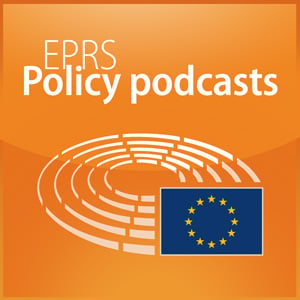EU human rights sanctions: Towards a European Magnitsky Act
European Parliament - EPRS Policy podcasts
European Parliament Webmaster
4.8 • 13 Ratings
🗓️ 15 January 2021
⏱️ 5 minutes
🧾️ Download transcript
Summary
https://www.europarl.europa.eu/thinktank/en/document.html?reference=EPRS_BRI(2020)659402
https://youtu.be/nuyFLBjZ4nY
Source: © European Union - EP
Transcript
Click on a timestamp to play from that location
| 0:00.0 | Welcome to the European Parliamentary Research Service podcast on EU Human Rights Sanctions. |
| 0:09.0 | EU sanctions target governments, companies, groups or individuals who violate fundamental human rights in the hope that they will change their behaviour. |
| 0:19.0 | But the EU has recently adopted a global human rights sanctions regime |
| 0:23.2 | that will allow it to condemn abuses no matter where they occurred. |
| 0:27.6 | Want to know more? Stay with us. |
| 0:33.6 | Sanctions are a key part of the EU's human rights toolbox. So when incentives such as preferential market access and diplomacy fail, |
| 0:42.3 | the EU can pull out sanctions to condemn human rights abuses, |
| 0:46.3 | prevent conflict or respond to emerging crises. |
| 0:49.3 | Currently, the EU has over 40 different sanctions regimes in place. |
| 0:59.4 | Some are mandated by the United Nations Security Council, as in the case of Yemen and Mali. |
| 1:04.1 | Others, when there is no international consensus, as in the case of Syria or Belarus, |
| 1:07.4 | are adopted autonomously by the EU. |
| 1:11.6 | So, what do we talk about when talk about sanctions? The most common measures are travel bans and asset phrases against human rights offenders, |
| 1:16.6 | who are also barred from financial transactions with EU companies and individuals. |
| 1:21.6 | But these restrictions are often accompanied by embargoes and EU sales of weapons and equipment |
| 1:26.6 | that can be used for internal repression. |
| 1:29.3 | The individuals targeted include government ministers, senior military, police and intelligence officers, |
| 1:36.3 | prosecutors and election officials, as well as non-state actors such as rebel militia. |
| 1:42.3 | As well as imposing sanctions, the EU can also respond to attacks on human rights and democracy |
| 1:48.0 | by suspending development aid with certain countries. |
| 1:51.0 | Indeed. |
| 1:52.0 | But the EU is shifting its focus from a geographical to a more thematic approach, |
... |
Please login to see the full transcript.
Disclaimer: The podcast and artwork embedded on this page are from European Parliament Webmaster, and are the property of its owner and not affiliated with or endorsed by Tapesearch.
Generated transcripts are the property of European Parliament Webmaster and are distributed freely under the Fair Use doctrine. Transcripts generated by Tapesearch are not guaranteed to be accurate.
Copyright © Tapesearch 2025.

